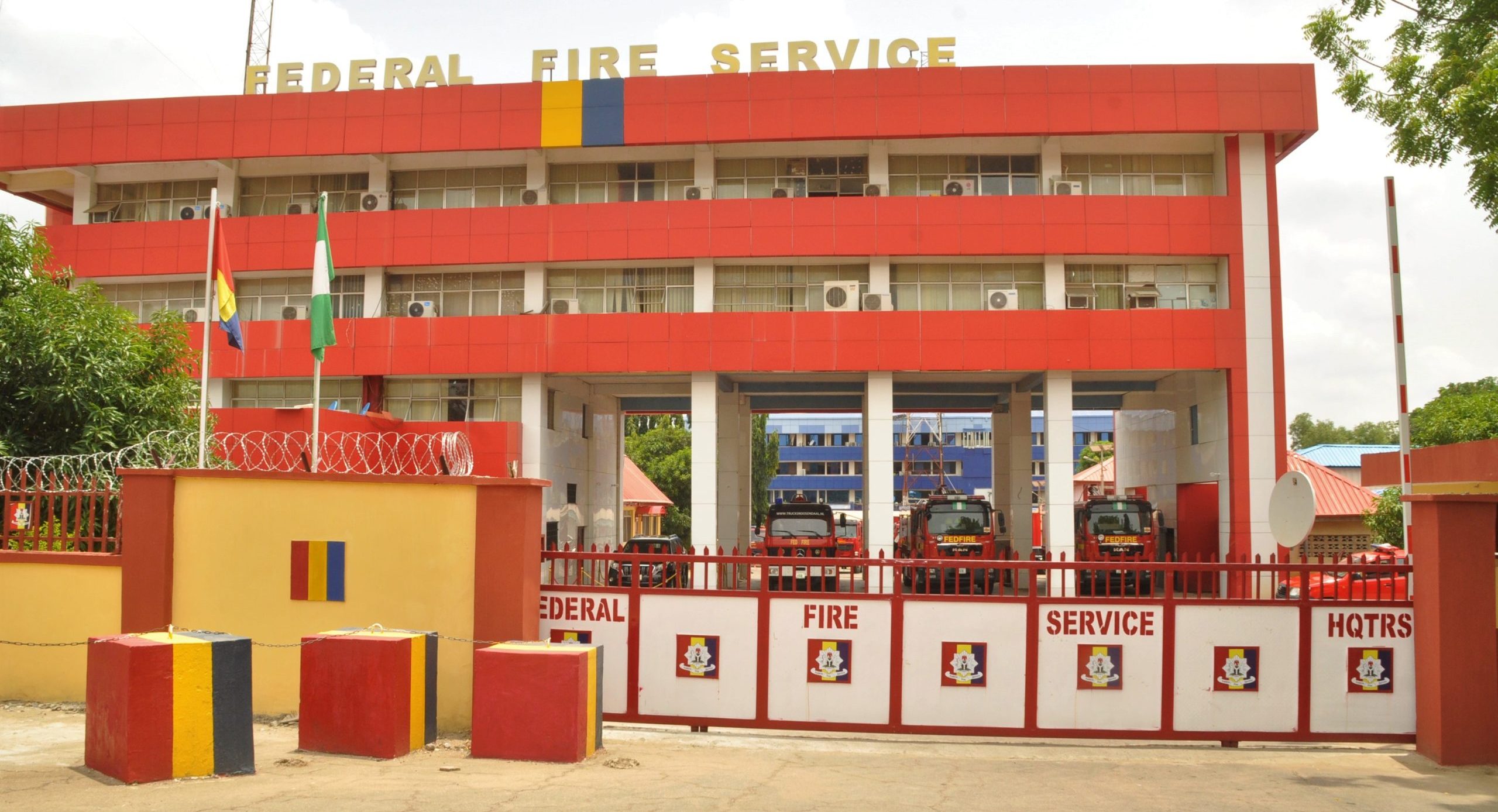One year after special mining marshals were deployed to combat criminal syndicates that are behind illegal mining rings in the country, the sector seemed to have experienced limited sanity with the lull in flouting mining laws and a reduction in the spate illegal miners loot the country’s wealth, As key stakeholders admit marginal progress, lingering challenges, including logistics, inter-agency synergy, and sustained community collaborations could throw a spanner in the works, ERNEST NZOR reports.
On March 21, 2024, the federal government inaugurated over 2,000 mining marshals, with the mandate of apprehending and prosecuting illegal miners who have, over the years, had a field day in the sub-sector.
Inaugurated alongside utility and operational vehicles, the operatives were also mandated to aggressively tackle the menace of illegal mining and the attendant economic sabotage suffered by the country.
Mining Marshals is a unit created by the Commandant-General of the Nigeria Security and Civil Defence Corps (NSCDC), Dr. Abubakar Audi, and its composition is drawn from the 36 states and the FCT commands of the NSCDC.
The Minister of Interior, Olubunmi Tunji-Ojo, while speaking during the inauguration of the marshals in Abuja, emphasised that the creation of mining marshals was a masterstroke in the government’s bid to enhance the capacity of officers and men of the corps to appropriately discharge its statutory duties in the protection of critical national assets and infrastructure.
At the inauguration, which coincided with the commemoration of the 2024 World Civil Defence Day, Tunji-Ojo described the assignment as one of the most important duties which the corps must perform. Among other things, the marshals are deployed to tackle the activities of illegal miners in over 1,975 illegal mining sites across the country.
Fifteen months after the inauguration, some stakeholders opine that the move has fundamentally altered the country’s mining landscape. Beginning with a staff strength of 2,220 officers, the number of marshals has grown to 2,670 within its first year through strategic recruitment aimed at reinforcing coverage in high-risk zones.
Unlike traditional law enforcement agents, the mining marshals are considered a tactical force to counter highly organized and often armed illegal mining groups that have persistently flouted mining laws by invading licensed sites, devastating ecosystems, and violently resisting government interventions.
To prepare the marshals for the Herculean task, they went through specialised combat training facilitated by the Ministry of Defence and the Office of the National Security Adviser (NSA). On completion, they were equipped with tactical surveillance technologies, including drones and miniature reconnaissance robots, and they have since then operated under a Standard Operating Procedure (SOP) approved by the Minister of Solid Minerals Development, Dr. Dele Alake.
According to the operational data, which underscored the marshals’ impact, over 327 illegal miners have been arrested, including foreign nationals, with several prosecutions already yielding convictions.
A notable case involved two Chinese nationals, Yang Chao and Wu Shan Chuan, who were sentenced to two years’ imprisonment each with an option of N1 million fine in March for illegal gold mining in Kwara State.
Their convictions, alongside those of compatriots Duan Ya Hong and Xiao Yi in the previous year, also indicated the judiciary’s increasing collaboration with the executive in addressing the menace of illegal mining across the country.
Among the marshals’ success stories was the recovery of 98 mining sites previously under illegal occupation. A standout operation at Mining Lease 19325 in Jagula, Kogi State, also saw over 3,000 illegal miners evacuated. Similar efforts in the Federal Capital Territory (FCT), Abia, and Kogi states have enabled legitimate operators to resume business.
Central to this initiative was President Bola Ahmed Tinubu’s administration’s drive to reposition the solid minerals sector as a pillar of economic diversification. Consequently, under Dr Alake’s leadership, the ministry swiftly deployed a security framework with the capacity to confront the scourge of illegal mining that had for so long undermined lawful operations and drained the country of mining revenue.
Speaking on the development during the first anniversary, Alake said it became imperative to adopt a faster approach to combating the scourge.
“We had to develop a faster approach to mobilise existing human resources,” the minister noted, referencing collaborations with the ministries of interior and defence, as well as the NSCDC, which led to the establishment of the corps.
“These partnerships gave rise to a specialised, multi-agency force designed to secure mining sites, restore order, and reclaim Nigeria’s mineral wealth. This recovery not only restores investors’ confidence but is also expected to boost revenue through royalties and official mineral exports.
Illegal miners loot the nation’s wealth, invade legal sites like locusts, and deter enforcement with violence.”
According to Alake, some illegal miners have occupied licensed areas for over a decade, often armed and operating in protected environments such as forest reserves and school grounds. He also cited the tragic loss of National Parks Service operatives in Oyo National Park, Oyo State, while confronting illegal miners.
“The evolution of illegal mining into a corporate-backed enterprise has compounded the threat. While individual illegal miners lack resources for deep excavation, corporate collaborators bring equipment and funding, scaling up criminality,” he decried.
These challenges prompted the design of a training program that equipped the marshals with tactical skills to combat emerging threats. Alake commended the Minister of Defence, Mohammed Badaru, the National Security Adviser (NSA), Nuhu Ribadu, and the Chief of Defence Staff (CDS), General Christopher Musa, for their support for the initiative.
Alake, who emphasised a dual-track strategy – combining force with dialogue, informed that the ministry’s offer of amnesty and formalisation for illegal miners, who are willing to reform, has yielded positive reports.
He explained: “Civilians that are trying to survive deserve moral suasion first, but those who resist with arms will be met kinetically. That is the reason that Mining Marshals were conceived as a hybrid force that ultimately includes the military and police.”
Despite the strides made, the mining marshals currently operate in only 10 states – Kogi, Niger, Kaduna, Nasarawa, Abia, Akwa Ibom, Ondo, Kwara, Enugu and the FCT. Areas where their presence has been limited have continued to experience widespread illegal mining activities.
The Chairman Miners Association of Nigeria (MAN), Akwa Ibom Chapter, Mr Iyakise Udofia, in his reaction, admitted that the marshals “are doing a fantastic job even though their effectiveness is limited by logistics.”
He recommended regional deployment units for broader impact. Experts have also cautioned that limited mobility, inadequate communication tools, as well as insufficient field gear have continued to hamper the corps’ operational effectiveness.
A lecturer at Anchor University, Lagos, Oluwaseun Victoria Fatoye, who told The Guardian that regulatory weaknesses persist in the mining sector, added: “There is poor documentation, corruption-tainted enforcement, and occasional community resistance. So, there is a need for stronger collaboration between mining stakeholders and host communities, as well as improvements in Nigeria’s mining database. The adoption of advanced tailings treatment, recycling, and land reclamation procedures and policies is therefore essential.
“Additionally, there should be enhancements in satellite imagery utilisation for mining oversight and the enforcement of more robust regulatory policies,” she said.
Fatoye recommended satellite-based surveillance, improved data systems, and stronger post-mining rehabilitation policies to strengthen regulation and build community trust.
But the ministry, recognising the challenges, began to ramp up cooperative registration and create formal pathways for artisanal miners, hoping to shift many from illegality to legitimacy.
“With increased funding, the marshals aim to expand operations into additional mineral-rich states. Also, satellite imagery and remote sensing tools will improve monitoring and intelligence.
“The Ministry equally plans to pursue all pending cases to deepen deterrence as well as ensure a major push to register more cooperatives and support small-scale miners with legal operating channels,” the minister said. In his response, the Commander of Mining Marshals, Mr John Attah Onoja, affirmed the group’s readiness to combat illegal mining.
“We are more motivated than ever to ramp up the battle against illegal mining and sanitise the sector,” he boasted while thanking Alake for providing the operational framework behind their successes and welcoming government efforts aimed at improving logistics.
As part of measures to ensure a lasting solution, an environmental geologist and Africa-focused resource analyst, Dr. Chinenye Florence Onyeabor, stressed the need for host communities’ empowerment through benefit-sharing mechanisms. She said: “Tensions between host communities and mining firms often drive illegal operations. Without clear community benefits, locals either sabotage legal efforts or ally with illegal miners.
It is absurd that communities that are hosting Nigeria’s most valuable mineral resources remain the poorest. This imbalance breeds resentment and complicity.”
She consequently called for strict enforcement of Community Development Agreements (CDAs) as mandated by the Nigerian Minerals and Mining Act (Section 116), recommending that these agreements be made public, reviewed annually, and enforced through community participation.
Onyeabor also criticised Nigeria’s reactive enforcement posture, saying: “We need a proactive strategy anchored on data, digital tools, and coordinated intelligence. Indonesia for example, integrated satellite tracking, drone surveillance, and blockchain-enabled mineral certification, achieving a 60 per cent drop in illegal mining within three years.”
She advocated for a digital-first approach at the Mining Cadastre Office with biometric licensing, GPS-tracked mineral movement, and drone-based surveillance. “Security forces need not just weapons, but data,” she held.
She further called for the formation of a dedicated inter-agency task force incorporating the Economic and Financial Crimes Commission (EFCC), the
Nigeria Customs Service, NSCDC, and state governments, modelled after Indonesia’s joint-force framework.
In just one year, the Mining Marshals have turned what seemed like an insurmountable challenge into a story of cautious optimism. By reclaiming sites, arresting violators, and introducing a culture of accountability, many think that mining security in the country has been redefined. However, for lasting impact, there is an urgent need for the government to address logistics, scale up nationwide coverage, and deepen community engagement.






